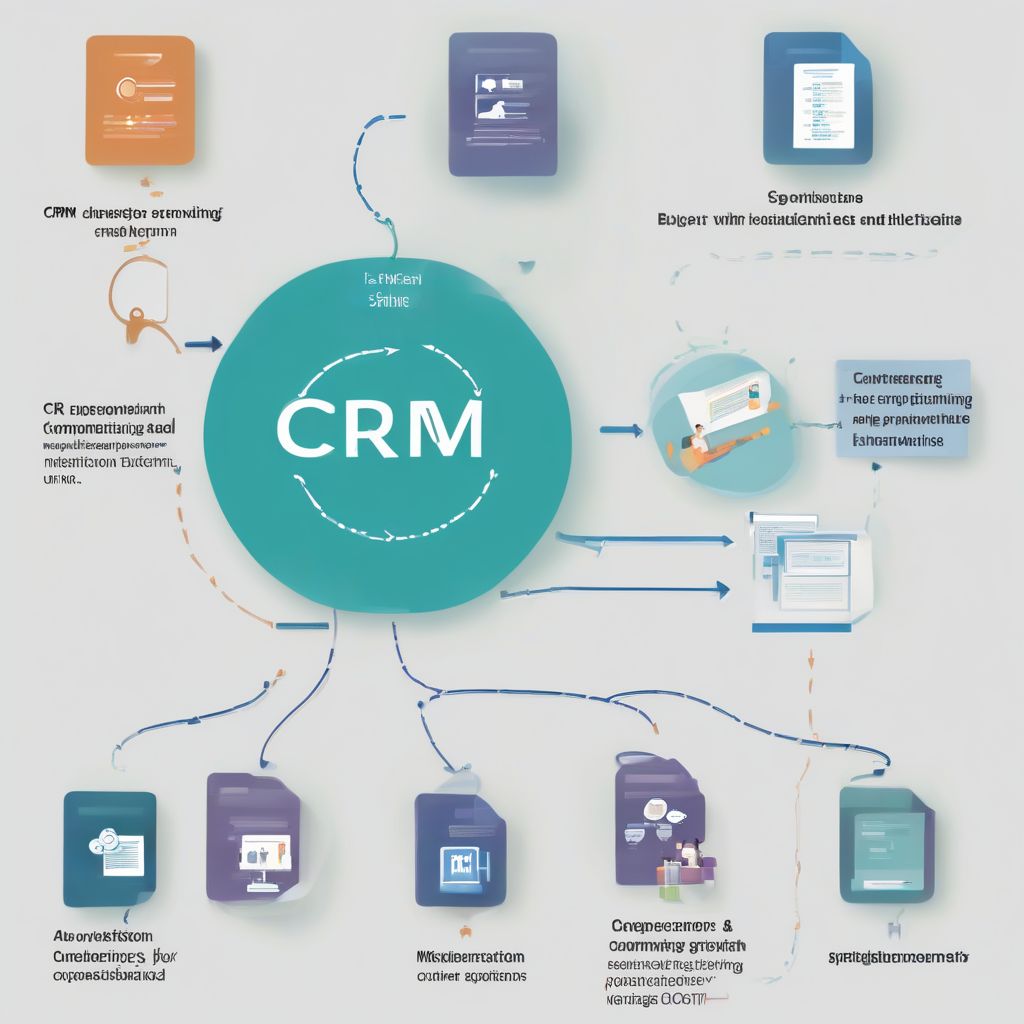In today’s competitive business landscape, managing customer relationships effectively is paramount to success. This is where Software For Crm comes into play, providing businesses with the tools they need to streamline their interactions with customers, improve customer satisfaction, and ultimately drive revenue growth.
Understanding CRM Software and Its Importance
CRM, which stands for Customer Relationship Management, is a strategic approach to managing a company’s interactions and relationships with customers and potential customers. It involves using technology to organize, automate, and synchronize sales, marketing, customer service, and technical support.
Software for CRM is the technological backbone of this approach. It encompasses a suite of applications designed to help businesses manage various aspects of the customer lifecycle, including:
- Contact Management: Storing and organizing customer data, such as contact information, communication history, and purchase history, in a centralized database.
- Sales Force Automation: Automating sales processes, such as lead generation, opportunity tracking, and sales forecasting, to improve sales team efficiency and productivity.
- Marketing Automation: Streamlining marketing tasks, such as email campaigns, lead nurturing, and social media marketing, to generate leads and move them through the sales funnel.
- Customer Service and Support: Providing tools for managing customer inquiries, complaints, and support requests effectively, leading to increased customer satisfaction and retention.
Why is CRM Software Essential for Businesses?
Implementing CRM software can bring numerous benefits to businesses of all sizes and industries. Some of the key advantages include:
1. Enhanced Customer Relationships
By providing a centralized platform for managing customer interactions, CRM software allows businesses to gain a 360-degree view of their customers. This comprehensive understanding of customer needs, preferences, and pain points enables businesses to personalize their interactions, provide tailored solutions, and build stronger relationships.
2. Increased Sales and Revenue
By automating sales processes, streamlining lead management, and providing insights into customer behavior, CRM software can significantly boost sales effectiveness. Sales teams can prioritize high-value leads, track opportunities more effectively, and close deals faster, leading to increased revenue generation.
3. Improved Customer Retention
Retaining existing customers is generally more cost-effective than acquiring new ones. CRM software plays a crucial role in customer retention by enabling businesses to provide exceptional customer service and support. By resolving customer issues promptly and proactively addressing their needs, businesses can foster customer loyalty and reduce churn.
4. Enhanced Marketing ROI
CRM software empowers businesses to create targeted marketing campaigns based on customer data and insights. By segmenting customers based on their demographics, purchase history, or engagement patterns, businesses can deliver highly relevant marketing messages, improving campaign effectiveness and maximizing return on investment (ROI).
5. Data-Driven Decision Making
Modern CRM software solutions come equipped with robust analytics and reporting capabilities. These features provide businesses with valuable insights into customer behavior, sales performance, and marketing campaign effectiveness. By leveraging data-driven insights, businesses can make informed decisions, optimize their operations, and drive continuous improvement.
Key Features to Consider in CRM Software
When choosing software for CRM, it’s essential to consider the specific needs and requirements of your business. However, some key features to look for include:
- Ease of Use: The CRM software should be intuitive and user-friendly, enabling your team to adopt and utilize it effectively without extensive training.
- Customization Options: The ability to customize the software to align with your business processes and industry-specific requirements is crucial.
- Integration Capabilities: Seamless integration with other business applications, such as email marketing platforms, accounting software, and social media platforms, is essential for streamlined operations.
- Mobile Accessibility: In today’s mobile-first world, accessing CRM data and functionalities on smartphones and tablets is paramount for sales teams on the go.
- Scalability: The CRM software should be scalable to accommodate your business growth, allowing you to add more users, features, and data as needed.
Choosing the Right CRM Software for Your Business
Selecting the most suitable software for CRM for your business can be a daunting task, given the wide array of available options. Here are some steps to guide your decision-making process:
- Define Your Business Needs: Identify your specific pain points, challenges, and goals you aim to address with a CRM solution.
- Determine Your Budget: Set a realistic budget for CRM software, considering implementation, subscription fees, and potential customization costs.
- Research and Compare Vendors: Explore different CRM vendors and compare their offerings based on features, pricing, customer reviews, and industry reputation.
- Request Demos and Trials: Contact vendors to schedule product demos and request free trials to test the software’s usability and suitability for your business.
- Evaluate Implementation and Support: Inquire about the vendor’s implementation process, training programs, and ongoing customer support services.
docudaiduong.com/wp-content/uploads/2024/08/crm-implementation-66bc84.jpg" alt="CRM Software Implementation Process" width="1024" height="1024">CRM Software Implementation Process
Conclusion
Investing in software for CRM is no longer a luxury but a necessity for businesses looking to thrive in today’s customer-centric market. By providing a centralized platform for managing customer interactions, automating key processes, and delivering valuable insights, CRM software empowers businesses to build stronger customer relationships, drive sales growth, and achieve their business objectives. Careful consideration of your business needs, thorough research, and a strategic implementation plan will ensure you select the right CRM software solution to propel your business forward.
